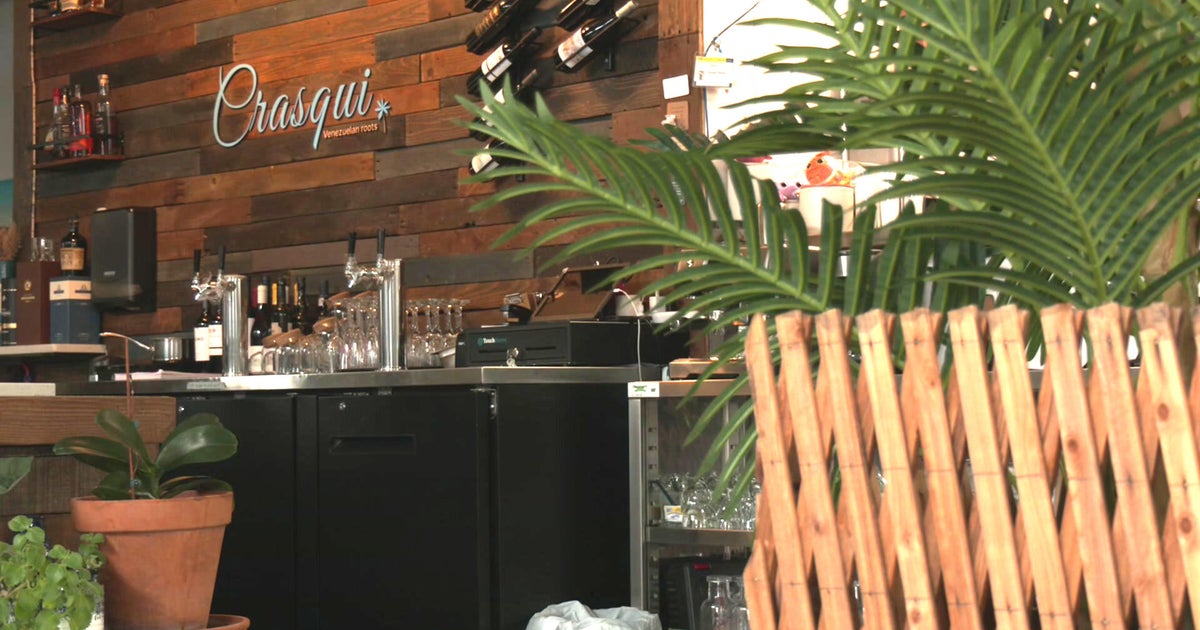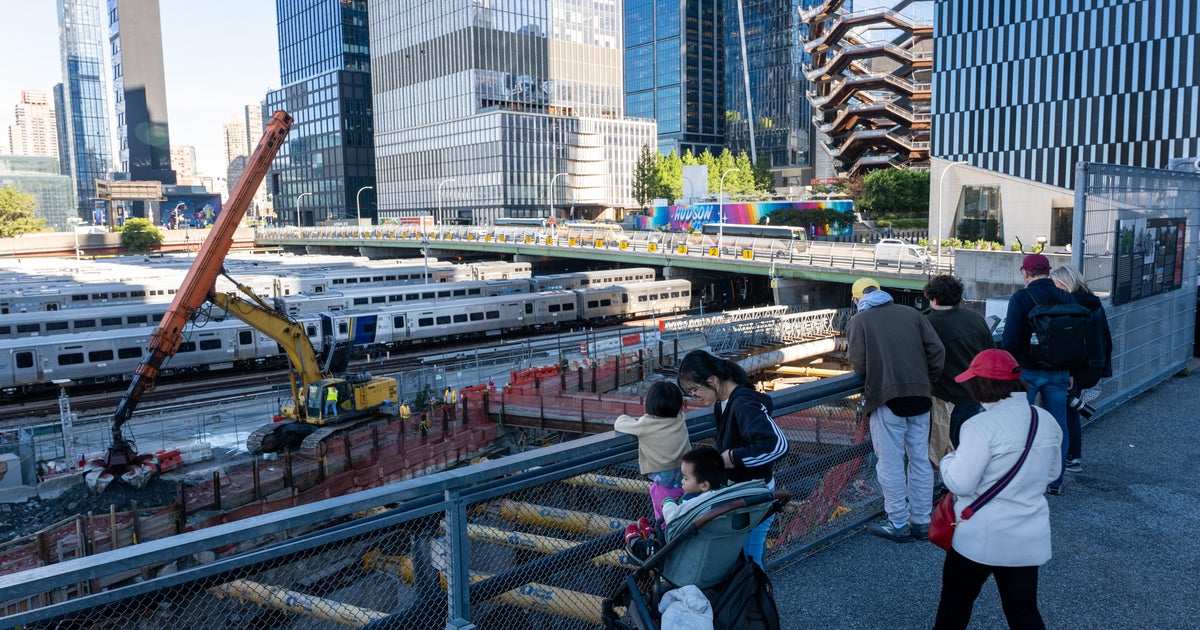Billions "disbursed" through Paycheck Protection Program? Small businesses say not yet
Trump administration officials say that tens of billions of dollars have already poured into small businesses under a new federal program to tide them over during the economic crash caused by the coronavirus. Yet there is little evidence that funds are flowing as robustly as claimed.
Bankers and small business owners told CBS MoneyWatch that the government initiative, dubbed the Paycheck Protection Program (PPP), has provided little financial relief so far at a time many employers are in urgent need of funds to pay workers, landlords, suppliers and other expenses.
The biggest draw of the $350 billion program, which launched last week and offers 1% interest loans to businesses with fewer than 500 workers, is that borrowers that don't lay off workers in the next eight weeks will have their loans forgiven, along with the interest.
Vice President Mike Pence on Tuesday tweeted that over $71 billion had been "disbursed" through the Paycheck Protection Program and that the government is "working to ensure that small businesses have the support they need as we face this crisis together."
The nation's biggest banks say they've received hundreds of thousands of applications for PPP loans. But none of the major banks has released numbers on actual loans.
Differing numbers
The average PPP loan that small business borrowers are seeking is nearly $170,000, according to numbers from Bank of America, which as of Tuesday morning was processing some 212,000 applications seeking a total of $36 billion. Based on that large sample from one bank, the vice president's tweet suggests that just over 420,000 small businesses have received PPP loans.
A spokesperson from the U.S. Small Business Administration declined to comment on Pence's tweet or the accuracy of his figures. The SBA said it only has data on the number of loans the agency has approved: "100,000-plus approved loans valued at more than $30 billion," an SBA spokesperson said by email.
"Approved loans, originated loans, processed loans, funded loans — all mean the same thing and can be used interchangeably," the spokesperson said. The agency does not track the amount of money that banks have loaned under the program.
A source close to the National Federation of Independent Business, a small business advocacy group, said the organization has no evidence that any of its hundreds of thousands of members have received funds. The source has heard anecdotally that businesses have yet to receive the money despite being approved for loans.
Briana and Andrew Volk, owners of Portland Hunt and Alpine Club in Portland, Maine, said they were approved for a PPP loan on Sunday, according to a notice from their banker. Three days later, though, they are still waiting for the funds.
Briana Volk said their bank has not provided any final paperwork to close the loan for their bar and restaurant — nor is it clear when they will get it. A closing date has not been scheduled. In the meantime, they don't know what to tell their workers, some of whom have already been laid off.
"If we take on the PPP loan and take our staff back on, we may very well be paying them less than what they'd get through supplemental unemployment insurance that the CARES Act carries," Volk said, referring to the broader $2 trillion federal stimulus law that includes the small business rescue program.
Groans over loans
First Bank, a community and small business lender in Hamilton, New Jersey, said it started taking applications for PPP loans and submitting borrower information to the SBA on Friday. So far, 50 loans have been approved.
But First Bank CEO Patrick Ryan said the company has yet to make a single loan under the program. He attributed the hold-up to the SBA having yet to issue a legal document, known as a promissory note, required to close the loan.
Without a signed promissory note, Ryan said it wasn't clear the SBA would guarantee the loans and that banks could end up on the hook if borrowers aren't able to pay them back. On top of that, the SBA could force the bank to redo the loan, putting the bank's small business borrower to the back of what has become a very crowded line for the loans.
Ryan said he expects the SBA to issue the final paperwork by the end of the week. After that, it would probably take another few days before he could begin making loans.
"Some banks may have gone ahead and made loans, but I would be reluctant to do that," he said. "The SBA has rules. Had we moved forward, the loans might have not qualified. It's not something I would recommend."
Ready Capital, one of the nation's largest lenders to small businesses, said it has processed 5,000 applications for PPP loans. Bankers at the firm have started calling the federal loans "groans," in part because they can be forgiven like grants, but also because of the difficultly of the process.
Ready Capital declined to comment on how many of those loans have been approved, but it says none have actually been made. Ready Capital CEO Thomas Capasse said his bank is also waiting for the SBA's final legal documents before moving ahead.
About two weeks ago, Monty Bennett, who runs hotel operator Ashford, had to lay off or furlough about 95% of its 7,000 workers. Now he is hoping the small business lending program will help him start paying his workers again.
"We could really use the money"
Ashford isn't technically a small business. But there is a carve-out in the CARES Act that allows hotel chains to apply for PPP loans as long as they don't have more than 500 workers at any one franchise location. Even so, the loans for each of the properties must be applied for separately. Ashford has nearly 130 hotels. That's nearly 130 applications.
So Bennett and five other employees began working non-stop a week ago to complete all of the company's applications. The banks only allow one person to be logged onto their application system at a time, making the submission process for his firm time-consuming. Bennett said some of his employees have had to work overnight submitting applications.
Ashford has applied for loans though three lenders: Bank of America, JPMorgan Chase and Key Bank. His first applications were submitted on Saturday. Bennett said his bankers say they have not gotten word from the SBA on whether the applications are being processed and when they would be approved.
"A day or two is fine," Bennett said. "But we could really use the money. We have been very careful about what we are telling our people."
Rick Lazio, a former U.S. Representative and banker at JPMorgan Chase who now works at tax-credit consultancy Alliantgroup, has been hosting conference calls for business owners on the government's coronavirus relief efforts. He said the loan delay is tempering some business owners' interest in tapping the rescue funds. That could ultimately hurt the government's efforts to revive the economy.
"It matters because there is a growing lack of trust," Lazio said. He cites conversations with some business owners who have been approved for a loan, but none who have actually gotten money. "It's significant that the loan had been approved, but you need the money in hand. Business owners are under tremendous stress."
Octavio Diaz, owner of Agave Mexican Restaurant in Oakland, California, is interested in a PPP loan in order to avoid firing workers. On Tuesday, he submitted all his paperwork, but said he hasn't heard back from his bank on the status of his loan.
"I believe the banks at this point are overwhelmed," Diaz said. "Some have already capped out and aren't taking any more applications because they are already maxed out. Hopefully there is room for us. I would love to get some positive feedback. If I get a yes or a no, we shall see what happens."



